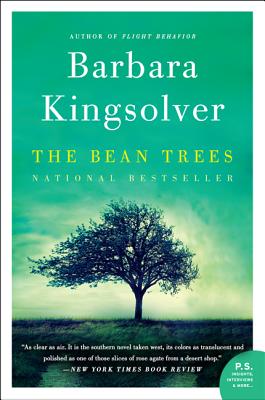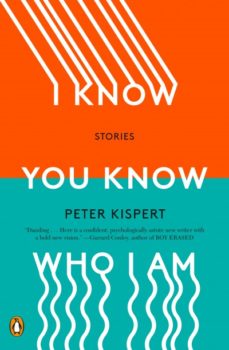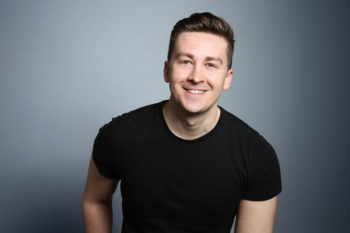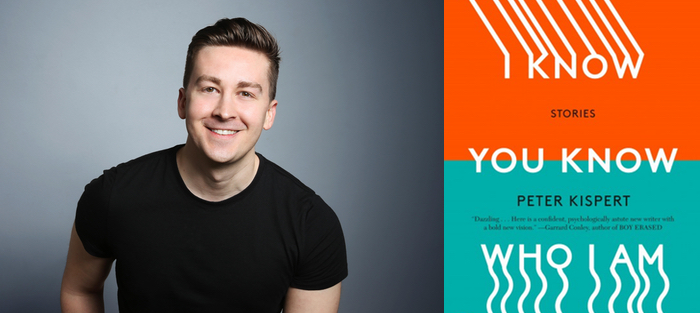Peter Kispert’s debut collection, I Know You Know Who I Am (Penguin), presents a kaleidoscope of deception. The subtle variation in the lies his queer characters tell and their motivations for telling them reveal the rich variety of ways we fool ourselves and those we love. The pressure to conform often comes most strongly from within. He catches his characters in moments of desperation and relational crisis, when the things they’ve sought so passionately are tantalizingly close, yet still out of reach. They seem like perfect stories for this interior moment: a deep dive into what motivates the myths individuals create and what they reveal about the queer experience and the human condition. We corresponded over email in April 2020.
Interview:
Lee Thomas: Tell me a bit about yourself, your roots.
Peter Kispert: I grew up in New Hampshire, on the Vermont border, and spent some summer weekends in my grandfather’s cabin on Cape Cod. I remember sweetly the Connecticut River cold and muddy even on a hazy August afternoon, and the dark plummet of a continental shelf just feet after a sandbar on the Cape. Seaweed wrapping around one ankle, sand too hot to stand on. I spent a lot of time outdoors, by myself. I chased butterflies after school in elementary and middle school, twirling the net like a baton. After my first boyfriend broke up with me, struck numb, I climbed a mountain on impulse, up a long sloping field. I’ve always retreated to nature, but that’s not something I’ve thought very much about, to be honest. It’s easy to forget how much it matters to me. I think I associate nature with a kind of masculinity, or did growing up. It’s strange to admit—consciously, I feel taught to think of splitting wood and hunting and danger when I think of the woods. But the way I feel in the woods, and in the water, is very different. Very comforted, very unseen, or maybe just unjudged. I want to say my roots are there—a place without, or before, shame.
Is there one book or writer who first made you think of becoming one yourself?
I started writing with some routine in high school. The work was no good of course but I felt committed to the pursuit. A few teachers encouraged me to write, though that encouragement always felt a little like something you tell someone who is six feet tall sophomore year and has no aptitude for basketball.
 While driving to visit my older brother, who was a freshman at a college hundreds of miles away, my mother put on an audiobook of Barbara Kingsolver’s The Bean Trees. I’d been assigned the book, and by that point been rebelling for years by refusing to do my homework or readings. It was a much rougher situation than I’ll get into, but I had sort of given up on school, and my mother was making this accommodation for us on this drive, and I just lived inside that story. We were so engrossed we missed a crucial exit.
While driving to visit my older brother, who was a freshman at a college hundreds of miles away, my mother put on an audiobook of Barbara Kingsolver’s The Bean Trees. I’d been assigned the book, and by that point been rebelling for years by refusing to do my homework or readings. It was a much rougher situation than I’ll get into, but I had sort of given up on school, and my mother was making this accommodation for us on this drive, and I just lived inside that story. We were so engrossed we missed a crucial exit.
I keenly remember not connecting to a lot of assigned reading in middle and high school, and beginning to tell myself the terrible and too-common story of how I wasn’t a reader, or a writer, for this perceived failure. I’m grateful that book met me when it did, between my mother and me—mercifully slow stop/go traffic on the interstate, the sun setting over Lake Erie. Now, my name is next to Barbara Kingsolver’s on my agency’s website—Kingsolver, Kispert—which does something to my heart!
Who are your literary guideposts? To what work or art do you return?
Though I feel inclined to complicate this, there were “aha” moments. Lauren Slater and Adrienne Rich have both written so beautifully about lying, and I love all of Jennifer Egan, Amy Hempel, and Kevin Brockmeier’s work. When I’m that transported, I have this passion to figure out the magic. You never can quite figure out the magic, but you can learn a lot while trying.
Can you talk a little about your writing practice? When and how do you get it done? Are you superstitious about it? Ritualistic? Pragmatic?
I’m always moving through the world thinking of my stories as I’m working them out on the page, often before I ever start to write in earnest. Some of these came out in a panic, or mania, with elements from my life as sort of set pieces (that pier in “River is to Ocean”—I was really missing the Cape that first year of grad school) and maybe that pace has to do with a hope of capturing the energy, or even style, of a very frenetic mind and insecure heart. And for myself, in the telling, meeting certain goalposts, addressing formal obstacles as they arose in that race. The speed of the drafting process for these just seemed right, and even became my preferred way of working.
I became a bit superstitious when I wrote in grad school—I’d only work at night, and on my bed. That, and the stack of marked-up workshop stories I slept next to for a few months (a mistake), didn’t encourage restful nights. It’s hard for me to plod along, in short form at least, when trying to inhabit a character who is trying to hold the world in place by charting the trembling movement around their lies. While some early drafts came out quite quickly, that’s not to say they came out easily. Accessing insecurity and jealousy through these characters felt like one true, heavy way to have a conversation with myself about what I was sometimes feeling, or had lived through. Never factually, but emotionally. I was trying to pull it out of me so I could watch it writhe. In a way I guess I felt I was proving its existence to myself in this way, which is more than a little ironic.
As far as rituals: I used to write late at night; now I usually write very early in the morning. Four-thirty, five until the sun rises and work emails start coming in. I usually listen to one song repeatedly which is… strange. Alexander Chee has written about the importance of keeping the work to yourself while you’re drafting, and more and more I find that’s true. There’s a psychic shift that occurs when I eagerly blurt what I think I’m working on. In the early going especially, I find the work doesn’t care much about my intentions for it. So I’ve been keeping projects closer to the chest.
Over what period of time were the stories in I Know You Know Who I Am written?
I wrote “Diving, Drifting” in 2011, then the rest came later—most of the stories in this book were written between winter of 2013 and summer of 2015, then heavily revised in 2018, with my agent, and again, pretty significantly with my editor, after selling the book to Penguin. I wrote “In the Palm of His Hand” just after the sale. My brilliant team—agent Caroline and editor Victoria—really respected my vision for each of these pieces and helped me so much refine toward that vision. I graduated from the MFA in spring of 2016, but that last year was mostly for being with great gay friends I never thought I’d find, drinking wine, studying tarot, living, finally, comfortably and fully queer, which felt—the word really might be—lifesaving. I really didn’t come back to the book until early 2018, when I went in to see if there was a pulse. And luckily, a lot still felt alive.
We live in a golden age of liars. What Jia Tolentino so aptly termed “Grifter Season.” What alchemy of our time do you think has combined to make this possible?
 There is a kind of deliciousness to exposing someone, feeling like the first to observe deceit. It’s flattering, maybe, to do this, or at least provides a nice jolt of superiority, and we get a lot of messaging that this exposure is inherently virtuous, and sometimes permit elements of cruelty to it without nuance. The Internet, Twitter especially, just brings so much to the surface. It levels, it reveals, it unearths years-old petty dramas that unfold horrifyingly in minutes, and exposes deep injustice and grift of all stripes. For the latter I am very glad.
There is a kind of deliciousness to exposing someone, feeling like the first to observe deceit. It’s flattering, maybe, to do this, or at least provides a nice jolt of superiority, and we get a lot of messaging that this exposure is inherently virtuous, and sometimes permit elements of cruelty to it without nuance. The Internet, Twitter especially, just brings so much to the surface. It levels, it reveals, it unearths years-old petty dramas that unfold horrifyingly in minutes, and exposes deep injustice and grift of all stripes. For the latter I am very glad.
We live in a golden age of liars. But I think we always have. I’m meeting morality with some seeming ambivalence here, but I want to underline I am emphatically not excusing liars, or dismissing outright questions of justice and consequence, which are important ones. I’m interested specifically in the inner turmoil, the emotional price and weight, of self-betrayal and deception as it is experienced and enacted by queer people. It’s a very thorny conversation, because we often assume malicious intent with lying, or moralize it to the point of not really being able to see its reverberation, and worse, language can fail us here; a lot of times when we talk about lying—in the context of politics, for example—I think we’re often meaning to talk about greed, but create this more general moral issue with “lying” as shorthand. On a personal level, we’re often really talking about shame. Deception doesn’t come from nowhere, but we usually can’t easily chart it. It often feels wrong to have a conversation about lying that ends with a finger pointed in sure, uncomplicated blame. At least, that was a hope for these stories. I think I’ve worked out what I’m trying to say here much better in my book, which might be my surest sign I’ve succeeded by my own standard.
Another recurrent theme of the stories that feels related here is embarrassment. In the title story, Ian tells his boyfriend Luke about a cool friend, Finn, a man he fabricates. He does so because, “My loneliness embarrassed me deeply, constant proof of my unlovability.” Can you talk a bit about the connection between shame and lying in your work?
Many—most—of the lies these characters tell, consciously, to themselves and others, have to do with some perceived deficit, an unfixable thing that must be fixed before they are worthy of receiving the love they chase. I haven’t really put it that starkly before, but that feels true. Specifically, in terms of lies of masculinity, lies of loneliness, and lies of superiority.
There is a lot of embarrassment in these stories. The truth, felt inside a lie like that, exacerbated to this larger than life high-stakes game of keeping it up, feels embarrassing. Often there’s no need to lie because the perception of some deficit—like not being masculine enough or whatever—is a crock of shit. Core rot. The emotional weight of avoiding what’s true can warp a lot too. Your vision becomes obstructed. And you can justify a lot of behavior when you’re able to position yourself as a person who feels they need to conjure, to deceive. There is, or can be at least, an inextricable link between shame and deception of the sort that I’m describing. Because queer people are made to feel so ashamed, I think it makes some sense, in a very zoomed-out, big-picture sort of way.
These are in a way stories with a strong moral message, maybe obviously, but I do want to interject that there is a hope, or maybe a way, for these characters, even if it isn’t on the page, or even immediately available to them yet, or they can’t see it, shimmering off in the distance. There is peace for them, if only they might finally want what’s true.
Several stories concern actors or aspiring actors, and nearly every one portrays a man acting a role. Do you have background in theater? If so, does one art influence the other?
I don’t have a good poker face, which is sort of funny, given this conversation. Still, I tried to act from the sixth grade into college. I spent a lot of time as Chorus Boy #3.
I consider all the ways a talentless actor is prismed through the trappings of theater, which reflects, I think, the way we manage the liar we know. There’s so much reinforcement built in, and then the collective knowledge they failed to embody someone else, but the actor feels perhaps they’ve really done it, and everybody knows they didn’t, but they still give the bouquets, and there’s another show the next night, with more applause, and this growing community of people who have collaborated in the lie of this embodiment. Always more auditions. There’s a lot of reinforcement, and a lot of audience backchanneling and investment in communicating how bad a bad actor is, just among the audience.
There’s a lot more that interests me about theatre too, and I enjoy rendering the space. I’m interested in the pulleys and levers and scrim and curtain, the proscenium arch, the way a massive set piece can glide in to end act one—the container for the performance. I toured backstage on Broadway for a few shows, for a now very desk-drawered novel. I had imagined there was, what, basketball courts of space (I really didn’t play) in the wings, but that was not at all the case! Anastasia’s huge train was hoisted to rest in mid-air!
Any opinions on current theater? Something so many of us are missing now …
 I miss attending Broadway shows, from the cheap seats. The last I saw was Mean Girls with my friend, early February, which was fun, if a pretty scene-by-scene adaptation of the film. Renee Rapp is a vision. Otherwise, I only really have two very strong opinions, which are that Chicago is a complete waste of money, and that Head Over Heels went under way too soon. (What happened! It was fun!)
I miss attending Broadway shows, from the cheap seats. The last I saw was Mean Girls with my friend, early February, which was fun, if a pretty scene-by-scene adaptation of the film. Renee Rapp is a vision. Otherwise, I only really have two very strong opinions, which are that Chicago is a complete waste of money, and that Head Over Heels went under way too soon. (What happened! It was fun!)
These are my fully informed and correct theatre (-re) opinions.
A liar doesn’t exist in a vacuum, he needs an audience. That’s something we all lack right now—human contact. Do you have any theories on how our extended separation might shape us after we all venture out in the world again?
I don’t, but I hope it makes us all appreciate each other more, and we emerge having reflected on our values and what we’re doing to live by them. Who knows.
I read something in Heather Havrilesky’s inferno of a newsletter, “Ask Molly,” that struck me as particularly relevant to your work. It’s an Adrienne Rich quote: “The possibilities that exist between two people are a kind of alchemy. They are the most interesting thing in life. The liar is someone who keeps losing sight of these possibilities.” Do you agree? Does lying seem like an overactive imagination to you, or a kind of failure of imagination?
I love that quote! Is it from Rich’s essay “Women and Honor: Some Notes on Lying”? The poet KC Trommer cited this essay, and I just lost myself in it.
I want to say lying is both: an overactive imagination, and a failure of imagination. Lying in the way I hope to have articulated it in this book, as it intersects with conversations about queerness and shame, tends to work from this place of perceived lack. And so it’s always doing the same thing. It’s always puffing up, overcompensating. That’s at once a lot of overactive effort, and deeply unimaginative. The “rules” of masculine performance are often as dumbly blunt as they are toxic.
I wouldn’t be so arrogant as to suggest revising Rich’s quote, but I do like thinking in terms of how the liar both loses sight of these possibilities and often simply cannot actually imagine them at all.
In the final story, “Mooring” the narrator says, “You do what you need to, to save what you need. To close one story and open a chance for the truth.” There’s a kind of optimism there—the addict’s self-deception—this is the last drink of the night, that illusion of control. Does lying seem fundamentally hopeful to you?
The lying in this book is often so aspirational, but never exactly hopeful. It presents an if/then. There would be some hope to that if I believed filling in the blanks of that formula with anything might yield some lasting result. The trouble becomes outside and inside the self. Deception encourages discord in both spheres. It fundamentally confuses and distracts as it appears to crystallize and focus. And of course, lying only takes you so far. So, at best, you get what you want, and you sustain it for a while—you’re wasting time. To say nothing of the pain you can cause others in this charge.
There are golden flecks of hope in the mess—because good things just sometimes happen to us without our causing them to happen—that further confuse the liar into believing he might be searching in the right direction. When anything good happens, I think it’s common the liar assigns it to his ability to deceive, so he simultaneously cannot hold that goodness and must run faster in pursuit of more of it. In these stories, I wanted to show people getting away with their shit. The people we’d cast stones at, ridicule, dismiss. Look how they suffer at their own hand. How they work backward to fill the un-fillable blank. Look how they dig and dig for just the moment of spotting that fool’s gold.






